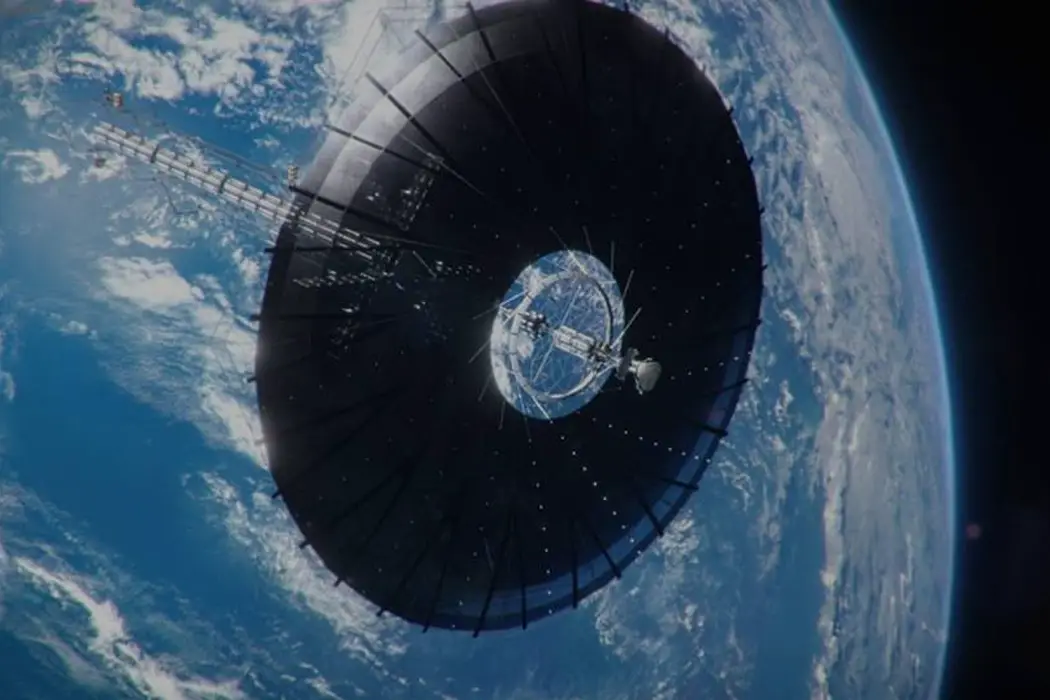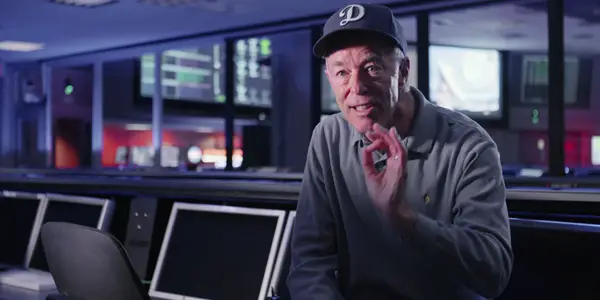LIVING UNIVERSE: Written In The Stars

Alex is a 28 year-old West Australian who has a…
“I get up each day with joy, you know why?” Gentry Lee, the 75-year-old chief engineer of NASA’s Jet Propulsion Laboratory remarks, delivered with the same intense passion that’s driven his 5 decade-long career, “because I know that day, I’m gonna learn something that I didn’t know before and that my picture, my overall tapestry of who we are, who I am, what our species is and how we got to be that way, will be lifted up”.
It’s this level of contagious dedication, devotion and curiosity about what truly makes us who we are, that directors Vincent Amouroux and Alex Barry have successfully translated into an engaging and hopeful celebration of science with Living Universe.
Finding Our Beginnings
Those who were curious about the authenticity of Christopher Nolan‘s Interstellar will be thrilled about the bounty of research, hypothetical questioning and reports packed within this tight 80 minute package, a well-investigated update on where we currently stand on our progress of achieving interstellar travel, and how one day, this advanced technology will allow us to truly answer the question if we’re alone in the universe.
People who were disappointed in the child-like narration and ponderous attitude of Terrence Malick‘s recent IMAX-sized expedition into space Voyage of Time will find a lot to love with Living Universe, a proficient mix of fascinating talking head interviews, breathtaking computer generated imagery and richly-detailed space photography that makes this complex information accessible to all ages.

Narrated by Karl Kruszelnicki (aka Dr Karl, Australia’s equivalent of Neil deGrasse Tyson), Living Universe documents two parallel explorations: one into the stars and the one back on Earth, with each quest feeding the other like an infinity symbol – an apt term when talking about the nature of space.
Everybody knows about the Mars rover, but that’s just the beginning when it comes to NASA’s attempts at exploring other planets, as we are treated to an incredibly detailed hypothetical astrological journey, one which imagines that in 150 years time, an AI-driven spacecraft (voiced by Australian astrophysicist Professor Tamara Davis) will begin its journey to the fictional planet of Minerva B. Not only does this fabricated trip demonstrate the level of progression (and the end goal) that scientists hope to accomplish in the future, but it also gives the documentary a nice recurring thread to fall back on, weaving in the different technological updates within the context of how they’d assist in achieving this theoretical expedition.
The Space Race
The heart of the documentary lies back on Earth, covering the continued efforts of people worldwide who work everyday to make this trip become a real possibility. The energetic Gentry Lee isn’t one of the only experts interviewed, as he’s joined by a diverse variety of engineers, robotics technicians, drone pilots and scientists from all over the globe.
Together, they give a wide and thorough record on how far we’ve come, how far we still need to go and just the immense size of this life-changing operation – something like this doesn’t just come from a handful of Americans, despite what Hollywood would have you thinking.

Despite the enthusiasm for what we might achieve, the documentary isn’t afraid to disclose the major problems that prevent these interstellar trips from happening, which are mainly practical issues; distance and time.
Exploring the Solar System isn’t that hard nowadays, but the time it takes to leave our galaxy and receive the results takes years, making the notion of comprehensively mapping other galaxies an impossibility without faster travel speeds and rapid communication. It’s noted that most of the scientists working on these projects will never live to see their results come to fruition, so for all of the scientific talk, there’s a strong amount of faith required too.
Don’t be confused when the concept of life being on other planets is mentioned, as this is not some UFO conspiracy video, but rather it’s about theorising the potential for habitation and the discovery of other, undefined forms of life, because as one scientist mentions, we have to be “open to different interpretations of life”.
We humans only seek lifeforms that are similar to our own; new animals, organisms and nature might exist on other undiscovered planets, but if so, the documentary proposes that they’ll probably be in foreign and unrecognisable shapes and sizes. It’s these types of questions and realisations that the film expertly plants within the audience’s minds, mixing speculative thought with profound research that allows for continued reflection long after the credits come to a close.
Conclusion: Living Universe
The idea of space exploration, Gentry Lee explains, is a symbol of humanity working together. In a dark time where the absurd notion of a militarised “Space Force” is being seriously considered, Vincent Amouroux and Alex Barry’s Living Universe is an encouraging sign that science and those who work within its fields are progressing in ways which continue to benefit and greatly enrich humanity as a whole.
Isaac Newton once said “If I have seen further it is by standing on the shoulders of giants.”, which speaks to how our contemporary understanding of the universe, and how we came to be, has come from generations of people all asking the same existential question. As this documentary shows us, thanks to those who have come before us, we come closer everyday to finding that elusive answer.
What are some of your favourite space documentaries? Let us know!
Living Universe was released in Australia on August 9th, 2018. No international release dates are currently known.
Does content like this matter to you?
Become a Member and support film journalism. Unlock access to all of Film Inquiry`s great articles. Join a community of like-minded readers who are passionate about cinema - get access to our private members Network, give back to independent filmmakers, and more.













